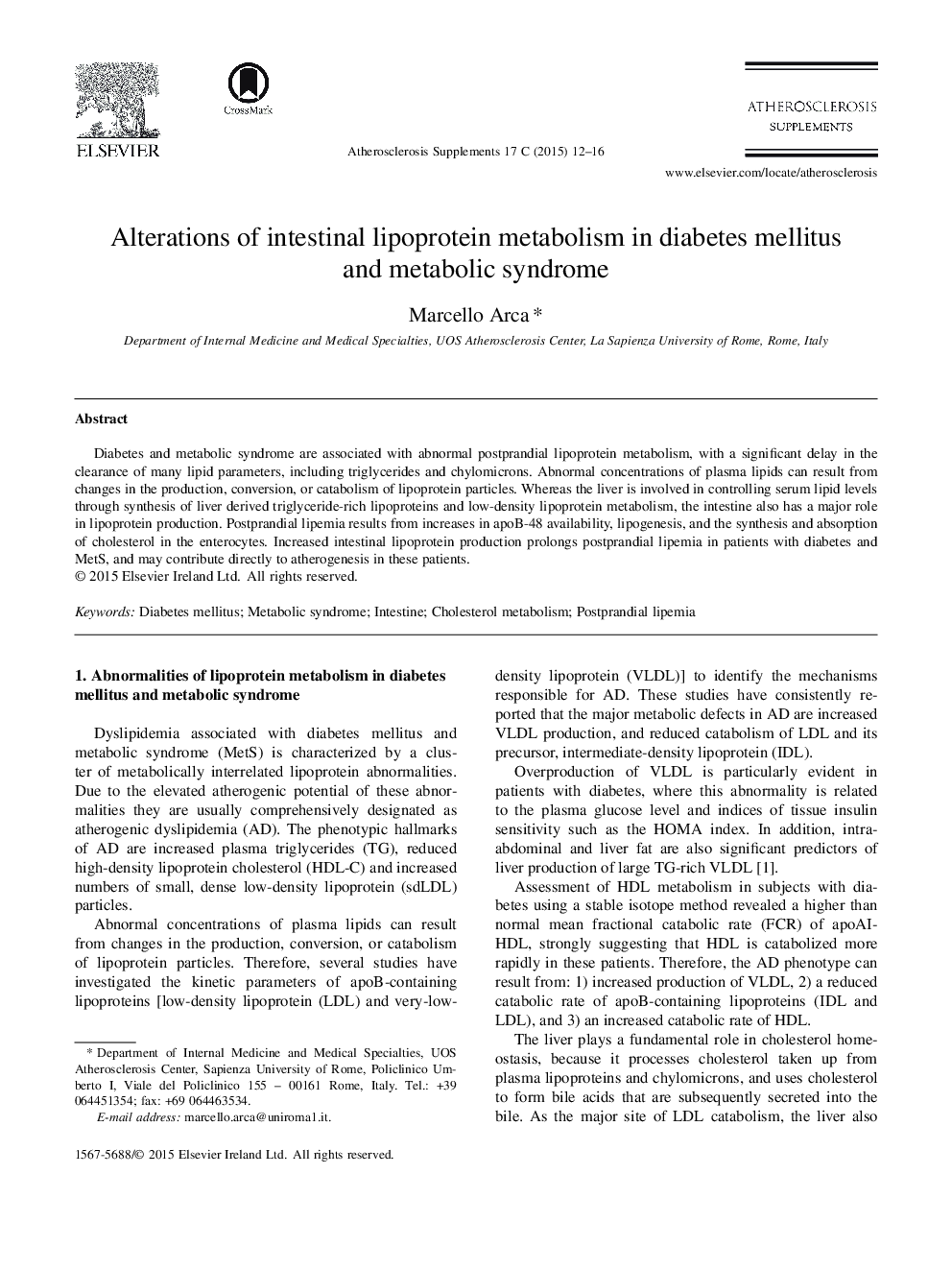| Article ID | Journal | Published Year | Pages | File Type |
|---|---|---|---|---|
| 2895492 | Atherosclerosis Supplements | 2015 | 5 Pages |
Diabetes and metabolic syndrome are associated with abnormal postprandial lipoprotein metabolism, with a significant delay in the clearance of many lipid parameters, including triglycerides and chylomicrons. Abnormal concentrations of plasma lipids can result from changes in the production, conversion, or catabolism of lipoprotein particles. Whereas the liver is involved in controlling serum lipid levels through synthesis of liver derived triglyceride-rich lipoproteins and low-density lipoprotein metabolism, the intestine also has a major role in lipoprotein production. Postprandial lipemia results from increases in apoB-48 availability, lipogenesis, and the synthesis and absorption of cholesterol in the enterocytes. Increased intestinal lipoprotein production prolongs postprandial lipemia in patients with diabetes and MetS, and may contribute directly to atherogenesis in these patients.
